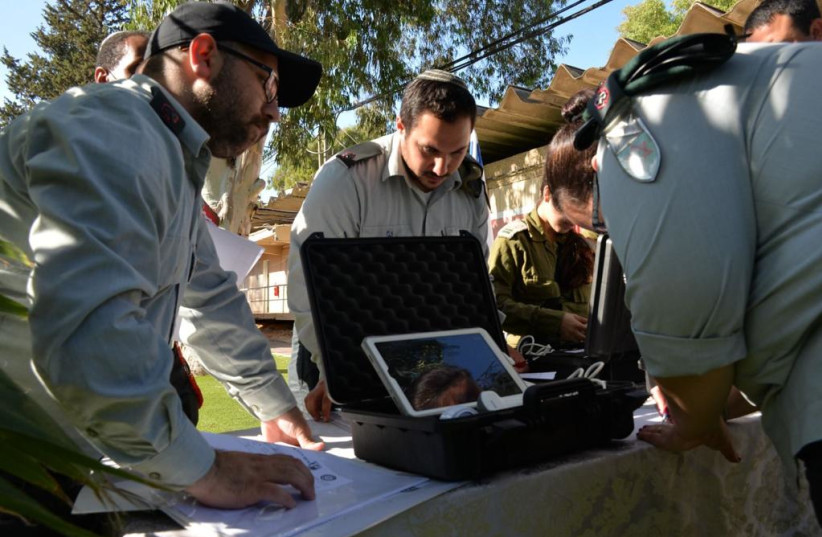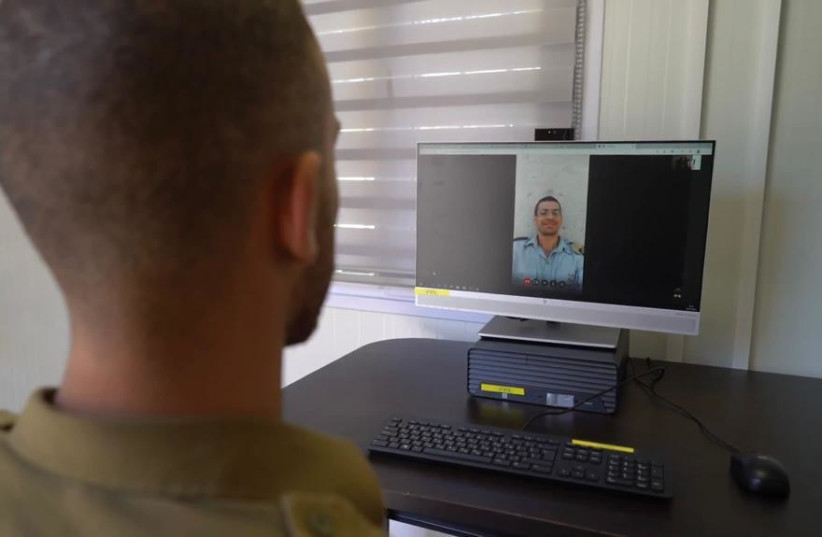In an attempt to reduce waiting times for medical appointments and improve overall medical care for soldiers, the IDF has launched a program moving more toward digitization while adding more clinics and manpower.
Dubbed “Health for You,” the military has called the program a “healthcare revolution.”
The changes to the Medical Corps by the IDF’s Technological and Logistics Directorate (ATAL) are part of an extensive program to improve and reform several issues in the army affecting the well-being of troops.
In February, ATAL began a program to provide better food and shuttle services for troops following harsh criticism about insufficient and low-quality food as well as a lack of transportation.
According to the military, the issues surrounding transportation, food and medical care were issues that needed to be immediately improved. IDF Chief of Staff Lt.-Gen. Aviv Kohavi and Deputy Chief of Staff Maj.-Gen. Herzi Halevi agreed to the program and provided a budget of NIS 250 million.

As part of the program, the IDF will completely renovate 117 clinics, with 57 clinics already finished, another 21 currently being renovated and another 39 expected to be renovated over the coming months.
The IDF's medical challenge in the West Bank, Arava
The IDF also built a new clinic in the Arava and will improve the accessibility to medical care for troops in the West Bank.
With more than 2.5 million doctor visits by troops last year, the military faces challenges treating all patients who are spread across hundreds of bases throughout the country, especially in the Arava region in Israel’s South and the West Bank where thousands of troops are deployed.
In the Arava, 84% of troops needed to travel several hours in order to reach a clinic for medical care. However, following the building of a clinic with over a dozen different specialists – including gynecologists, dentists, orthopedists, physiotherapists and more – 80% of troops are able to receive care and get medication close to their bases.
The military also provides shuttle services from bases in the area to the clinic in order to make it easier for troops to get there. According to data provided by the military, since the clinic was built in June, there were more than 440 visits to specialists at the clinic including 200 visits to dentists.
In addition to more dentists available for troops, the military has procured advanced dentistry equipment including a machine that can produce a crown that can be placed within hours, rather than days, of the soldier coming to the clinic.

The IDF also recognized the need to improve medical care for troops in the West Bank. By 2023, it will install remote medical specialist complexes for troops for telemedicine as well as a dedicated shuttle for troops who need to get to clinics.
The telemedicine complexes will not only be in the West Bank but on 22 bases across Israel where troops can speak to a specialist anywhere in the country. The complexes, in trailers with high-speed Internet, have two telemedicine “meeting rooms” that can operate simultaneously.
The complexes will provide soldiers with privacy while speaking to doctors and will save them time that they would otherwise need to take off from duty in order to travel to a clinic.
IDF heading toward digitization
In addition to the telemedicine complexes, the military is moving toward digitization with the aim to create additional appointments while reducing waiting times for specialists, especially for combat troops who are based along the country’s borders far from clinics.

The military will also expand the services provided to soldiers who are pregnant by outsourcing. The goal is to shorten waiting times for appointments with gynecologists and laboratory tests.
With suicides being the leading cause of death in the military in recent years, the IDF is also attempting to improve the quality of care provided to troops looking for mental health services.
Waiting times to see a medical health officer are currently at 51 days. The military hopes to reduce that to a maximum of 15 days for combat troops and 28 days for non-combat soldiers by adding 18 mental health officers and three more psychiatrists. The IDF will also provide specialized training for commanders.
